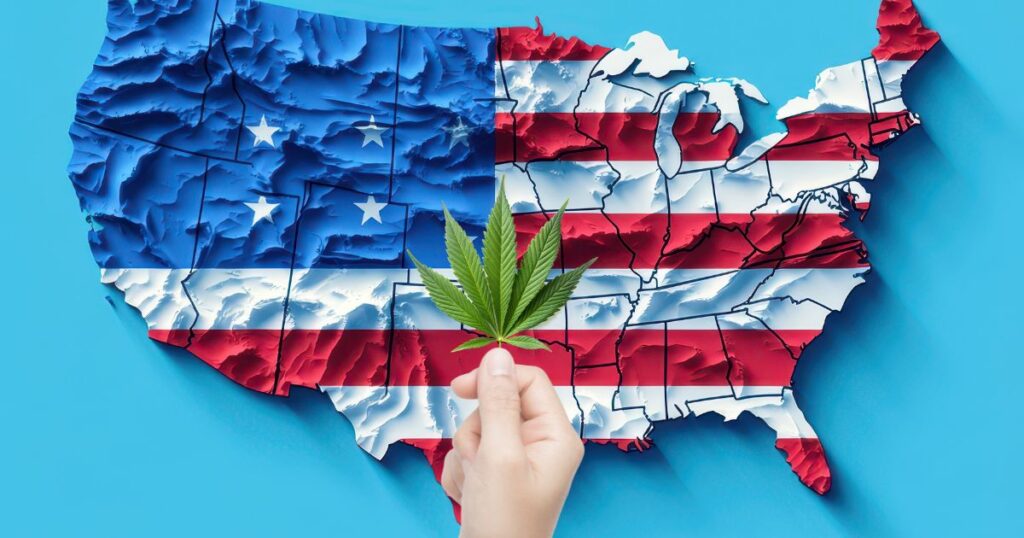Imagine a small, family-run cannabis farm in Northern California—Generations of farmers, proud of their careful craftsmanship, growing vibrant strains, connecting directly with local dispensaries, expressing passion in every bud. This is the face of the legacy cannabis industry: small businesses, craft growers, and artisanal makers with deep roots and community ties.
When news first broke that the federal government was considering reclassifying cannabis—from Schedule I (the most restricted class) to Schedule III—it felt like a long-awaited breakthrough to many.
Some in the cannabis industry breathed a temporary sigh of relief: Schedule III status would alleviate the crushing burden of Section 280E—allowing businesses to deduct ordinary expenses from their income tax—and perhaps even open breaching routes toward banking and easier operations
But quickly, doubts surfaced. Rescheduling wouldn’t open doors to interstate markets. It wouldn’t lift federal permitting barriers. It would layer small businesses with new FDA and DEA regulations—especially around manufacturing, packaging, and testing—that are notoriously expensive to meet.
Will Craft Survive—or Will Giants Prevail?
Even after if cannabis was rescheduled by the federal government, supply chains would largely remain trapped in state silos—unable to tap into national markets. It’s a structure favoring large, capital-rich players with national infrastructure who can absorb stricter regulations. Meanwhile, independent farms stay in a box limited to their local markets
The concerns around rescheduling are far from hypothetical. Rescheduling could pave the way for corporate consolidation, threatening to erase authentic, grassroots cannabis culture.
For craft growers, such as extractors and small operators, adhering to FDA Good Manufacturing Practices (GMP), precise labeling requirements, standardized formulations, and other regulatory demands could become incredibly expensive.
Many argue that the only true path forward is full federal legalization through descheduling. Rescheduling is not a victory—it’s a subtle repackaging of prohibition, legitimizing cannabis primarily through the lens of corporate medicine.
Why Descheduling Cannabis Isn’t Just an Option—it’s a Necessity
Descheduling removes cannabis entirely from the Controlled Substances Act (CSA), treating it like alcohol or tobacco—subjects of regulation, not criminalization. This opens doors for many possibilities:
Opens Interstate Commerce and True Market Freedom
Descheduling would unlock interstate markets—from California to Maine—and allow small and medium businesses to compete nationally.
Descheduling could open up a more competitive national market, making it easier for smaller businesses to thrive by lowering barriers to entry and promoting a more dynamic and diverse industry.
Removes Crippling Regulation and Tax Burdens
Descheduling also eliminates the need for strict federal manufacturing compliance—GMPs, labeling, excessive testing—costs that crush small operators.
Unlike a rescheduled scenario, descheduling cannabis allows businesses to operate under reasonable, state-led commercial standards.
It also relieves them from Section 280E taxes and opens doors to traditional banking pipelines
Protects Against Monopolization by Not Just Big Pharma—but Tobacco and Alcohol Industries Too
Rescheduling would hand the reins to giants: big pharmaceutical companies already ready for FDA-certified drug production would crowd out small producers. As cannabis remains within the controlled substance framework, there is a risk that pharmaceutical companies could capture the market, potentially displacing legacy operators.
Meanwhile, large tobacco or alcohol conglomerates—who possess massive distribution networks and regulatory clout—would be poised to dominate the legal cannabis landscape with ease, pushing out local brands.
By treating cannabis like alcohol or tobacco at the federal level, descheduling ensures traditional cannabis businesses keep their place, instead of being subsumed by powerful non‑cannabis industries
The Realistic Challenges—But the Greater Vision
Of course, descheduling isn’t without challenges. We need to rebuild regulatory infrastructure to support interstate trade, oversee public health, and ensure fair taxation—responsibilities currently managed by both federal and state systems.
Descheduling cannabis may not be a perfect solution and could lead to legal or enforcement challenges. However, many think that it remains the only way to create a fair and thriving cannabis industry, free from control and big business power.
Stories That Illuminate the Path Forward
Consider this: In a descheduled world, that a craft farm in California could ship its premium strains to shops in states like Illinois or New York, forging new partnerships, growing its brand, and fueling local artisan economies.
Instead of being weighed down by compliance teams, they could focus on quality, community engagement, and innovation.
In contrast, with rescheduling, they would face overwhelming DEA paperwork, struggle to compete with companies with billions, lose access to banking, bear heavy regulatory costs, and remain stuck in their own backyards.
As policy moves forward, small businesses, community members, and activists must advocate not just for change—but for the right change: descheduling marijuana, so its future mirrors the open, diverse, strong heart of the industry as it started—not the corporate, FDA-approved version it might turn into.






















